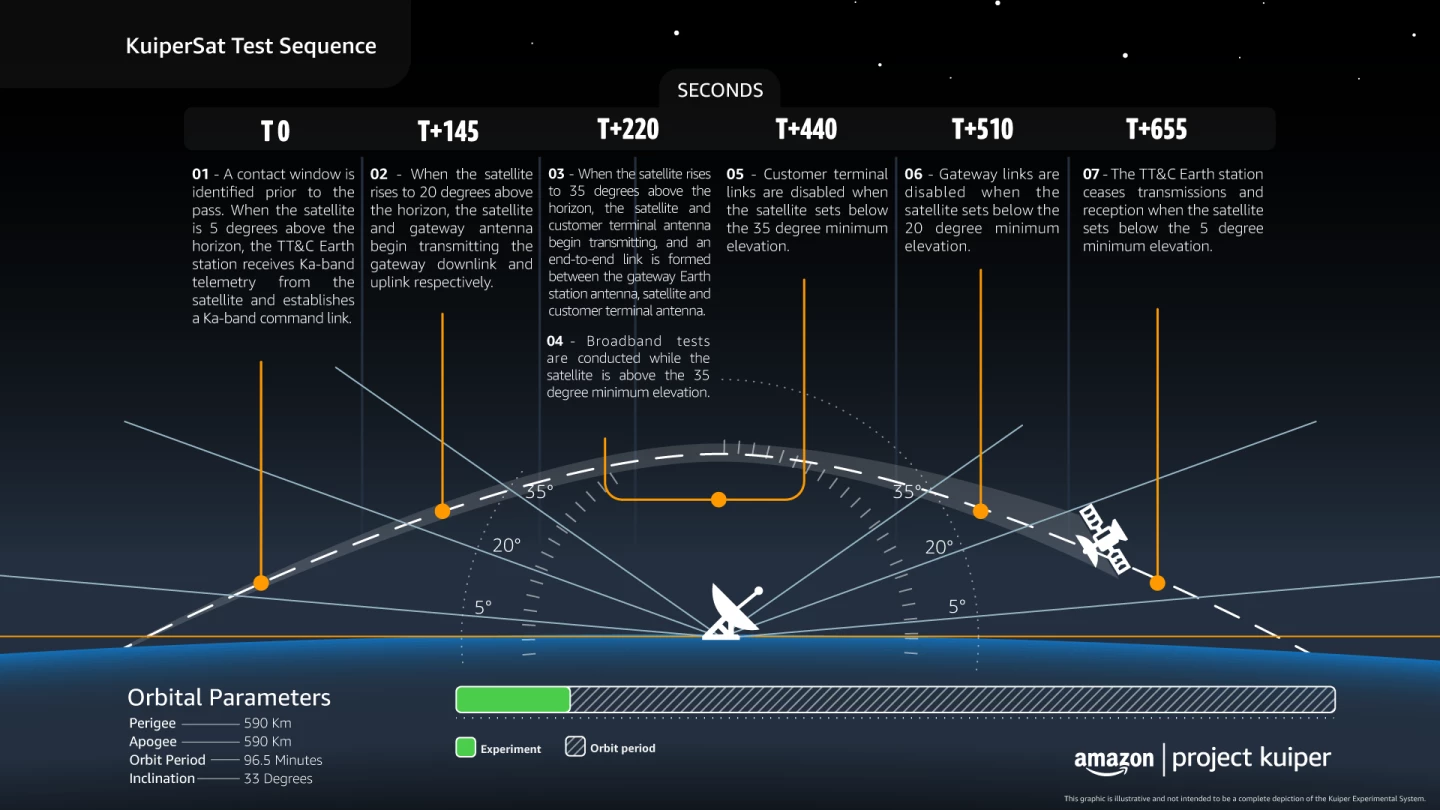Amazon announced today that it is going ahead with Project Kuiper, its rival to SpaceX's Starlink orbital global internet service, by launching a pair of prototype satellites into low-Earth orbit next year. Operating under an experimental license from the US Federal Communications Commission (FCC), KuiperSat-1 and KuiperSat-2 will test the communications and networking technology for the final satellite design.
According to Amazon, the pending license will allow it to not only launch the two prototypes, but also validate its launch operations and mission management techniques as well as the proprietary customer ground terminals used for the Earthside end of the network. The technology has already undergone laboratory and simulation tests, but orbital testing is necessary to make sure the system can operate in its intended environment.
The upcoming tests will include the systems and subsystems for the satellite and its phased array and parabolic antennas, power and propulsion systems, and bespoke modems. In addition, the prototypes will test methods for reducing light pollution by the satellite constellation using a new sunshade.

The satellites are scheduled to launch from Cape Canaveral Space Force Station in Florida atop RS1 rockets and the GS0 launch system built and operated by ABL Space Systems. The prototypes are designed to reduce space debris by actively deorbiting at the end of the mission so they burn up in the Earth's atmosphere.
Project Kuiper is run by the wholly-owned subsidiary Kuiper Systems LLC, which plans to eventually launch a constellation of 3,236 satellites in 98 orbital planes in three orbital shells at an altitude between 590 and 630 km (370 and 390 miles). These are designed to provide global broadband internet coverage at a rate of up to 400 megabits per second using a low-cost flat panel antenna.
"Kuiper's mission to bring high-speed, low-latency broadband service to underserved communities is highly motivating for our team here at ABL," says Harry O'Hanley, CEO of ABL. "Amazon will play a central role in the next generation of space infrastructure, and we're proud to have been selected as their launch partner for these critical early flights."
Source: Amazon






